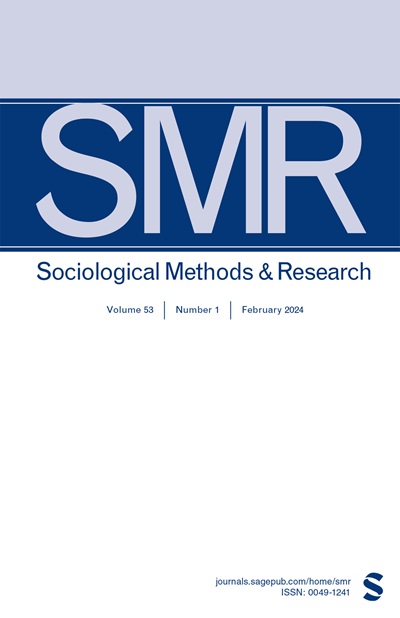全国家庭调查是否偏向幸福家庭?选择性调查无应答的多因素分析
IF 6.5
2区 社会学
Q1 SOCIAL SCIENCES, MATHEMATICAL METHODS
引用次数: 6
摘要
事实上,在美国和欧洲进行的所有大规模家庭调查都对当代社会的家庭关系产生了积极的看法。目前的研究考察了这样的调查是否受到选择性不反应的影响。有消极家庭关系的人是否更不可能参与调查,如果是这样,这在多大程度上产生了对家庭团结的有偏见的描述性观点?采用新颖的多因素设计与匹配的登记数据,我们检查了荷兰25-45岁成年子女的父母不反应的决定因素。我们的分析揭示了亲子关系的强度对父母不回应的显著影响,尤其是对父亲。此外,我们发现离婚对父亲参与的负面影响,当家庭关系较弱时,这种影响更强。虽然这些发现支持选择性不反应的假设,但影响的幅度很小,并且在纠正选择性不反应时,对家庭关系的描述性发现仅略有变化。本文章由计算机程序翻译,如有差异,请以英文原文为准。
Are National Family Surveys Biased toward the Happy Family? A Multiactor Analysis of Selective Survey Nonresponse
Virtually, all large-scale family surveys in the United States and Europe have yielded a positive view of family ties in contemporary societies. The present study examines whether surveys like these are affected by selective nonresponse. Are people with negative family ties less likely to participate in surveys, and if so, to what extent does this yield a biased descriptive view of family solidarity? Using a novel multiactor design with matched register data, we examine the determinants of nonresponse of the parents of adult children aged 25–45 in the Netherlands. Our analysis reveals significant effects of the strength of parent–child ties on parental nonresponse, especially for fathers. Moreover, we find negative effects of divorce on father’s participation and this effect is stronger when family ties are weak. While these findings support the hypothesis of selective nonresponse, the magnitude of the effects is small and descriptive findings on family ties change only modestly when correcting for selective nonresponse.
求助全文
通过发布文献求助,成功后即可免费获取论文全文。
去求助
来源期刊

Sociological Methods & Research
Multiple-
CiteScore
16.30
自引率
3.20%
发文量
40
期刊介绍:
Sociological Methods & Research is a quarterly journal devoted to sociology as a cumulative empirical science. The objectives of SMR are multiple, but emphasis is placed on articles that advance the understanding of the field through systematic presentations that clarify methodological problems and assist in ordering the known facts in an area. Review articles will be published, particularly those that emphasize a critical analysis of the status of the arts, but original presentations that are broadly based and provide new research will also be published. Intrinsically, SMR is viewed as substantive journal but one that is highly focused on the assessment of the scientific status of sociology. The scope is broad and flexible, and authors are invited to correspond with the editors about the appropriateness of their articles.
 求助内容:
求助内容: 应助结果提醒方式:
应助结果提醒方式:


